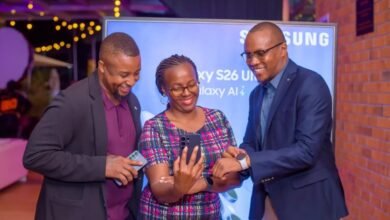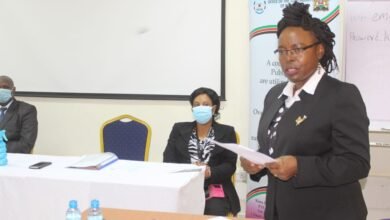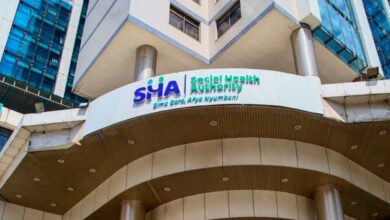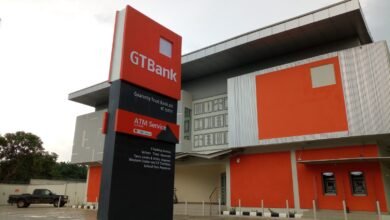
Akinwumi Adesina, the President of the African Development Bank Group, has delivered a compelling message at the 7th Korea-Africa Economic Cooperation (KOAFEC) Ministerial Conference, urging delegates to view the gathering as a pivotal opportunity to garner support for several key objectives.
This significant conference commenced in Busan, South Korea, with a strong emphasis on addressing critical challenges facing the African continent.
Co-hosted by the African Development Bank Group and the Ministry of Economy and Finance of the Republic of Korea, this summit has brought together key stakeholders to explore strategies for advancing sustainable energy and agricultural development in Africa.
Under the theme “Embracing a Sustainable Future: Just Energy Transition and Agricultural Transformation in Africa,” the conference highlights two vital development priorities for Africa: achieving universal energy access and transforming the continent into a major agricultural contributor to the global economy.
One of the key initiatives discussed is the African Development Bank’s active preparation of a regional operation to finance the Regional Rice Resilient Value Chains Development (REWARD) program in West Africa.
This substantial initiative, with an investment of Ksh 95.4 billion ($650 million), aims to boost rice production across 15 member countries of the Economic Community of West African States (ECOWAS).
The program’s focus includes increasing double cropping and yields on 750,000 hectares of irrigated land, benefitting one million rice farmers, with 30 percent of them being women. The program is expected to elevate total paddy production to 10.5 million tons annually by 2028.
Adesina emphasized the significance of this collaboration and highlighted Korea’s consistent support for the African Development Bank Group.
He noted that Korea was a strong advocate for the Bank’s general capital increase in 2019 and pledged a remarkable Ksh 15.4 billion ($105 million) to the 16th replenishment of the African Development Fund, marking the highest contribution ever made to the Fund.
He also acknowledged the Korea Trust Fund and the Ksh 88 billion ($600) million Korea-Africa Energy Investment Framework, which support capacity-building and energy sector development in African countries.
Adesina outlined the financial challenges facing Africa, emphasizing the need for additional resources to meet the Sustainable Development Goals by 2030.
He highlighted limited access to electricity, with nearly 600 million people on the continent still lacking this essential service.
Although significant progress has been made since the launch of the African Development Bank’s New Deal on Energy for Africa in 2016, there remains a considerable gap.
To address these challenges, Adesina emphasized Africa’s vast renewable energy potential, including 11 terawatts of solar capacity, of which only 1 percent is utilized.
The African Development Bank has made substantial investments in renewable energy, with renewable sources comprising 87 percent of its power generation portfolio.
However, Adesina stressed the importance of not relying solely on renewables due to their intermittent nature, which affects reliability for industrial use.
Adesina advocated for the use of natural gas, now abundantly available in Africa, as a complementary energy source that could reduce emissions while supporting energy access.
He also highlighted the African Development Bank’s involvement in the Just Energy Transition Partnerships in South Africa and Senegal, a Ksh 366.8 million ($2.5) billion initiative in collaboration with the European Union, the United States, the United Kingdom, Germany, and France.
Furthermore, the Bank is actively working to develop bankable projects through its New Partnership for Africa’s Development (NEPAD) Infrastructure Project Preparation Facility and Africa50.
In conclusion, Adesina emphasized the bright future of Africa and called for a strong partnership with South Korea to accelerate the continent’s growth and development.
Korea’s Deputy Prime Minister and Minister of Economy and Finance, Kyungho Choo, underscored the essential role that both Korea and Africa must play in achieving these objectives. He highlighted Korea’s strengths in high-tech industries and innovative technologies and emphasized the abundant opportunities offered by Africa as a burgeoning market and industrial hub with a dynamic young population.
Kyungho stressed the need for strengthened cooperation between Africa and Korea, envisioning a partnership that would serve as a solid foundation of solidarity.
Dr. Hwang-yong Kim, Director General of Technology Cooperation Bureau, Korea Rural Development Administration, expressed confidence that African countries could follow in Korea’s footsteps in achieving successful development.
He highlighted Korea’s transformation from one of the world’s poorest nations in the 1960s to one of the largest economies today, emphasizing the potential for African countries to emulate this progress.
The 7th KOAFEC Ministerial Conference serves as a platform for important discussions on Korea-Africa relations, development challenges, and opportunities. The conference brings together key stakeholders, including African finance ministers, African Development Bank executive directors, African ambassadors, heads of pan-African institutions, non-governmental organizations, African CEOs, and Korean private sector leaders.





